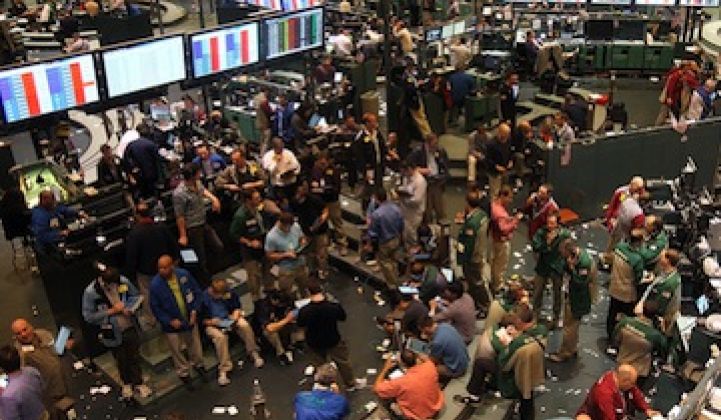Banks, trading houses and corporations trading energy and related commodities are bracing for one of the most visible financial reform efforts of the last century, which will finally take effect next month, and are observing the initial impacts on the first sector to be impacted: credit and interest rates.
Rules written by the Commodity Futures Trading Commission since the passage of the Dodd-Frank financial reform legislation require all registered "swap dealers" to register their trades with centralized swap data repositories. The first stage of required reporting kicked in on the final day of 2012 for the notionally huge but comparatively tiny credit and interest rate markets, and is scheduled to start for the equally enormous but potentially more varied and heterogeneous commodity and energy trading markets in February (alongside foreign exchange and equity swaps).
All other market participants that are required to report their transactions are due to begin reporting in April, the CFTC said in announcing the first wave of trade reporting.
Trades are being collected by an industry-run group calling itself a "user-governed cooperative" that is conceptually in line with the legacy of exchanges and similar platforms being licensed as self-regulatory organizations. The cooperative group, run by a former CFTC commissioner named Mike Dunn, is called the DTCC Data Repository (DDR); "DTCC" stands for Depository Trust and Clearing Corporation.
Let the sunlight in
One of the great surprises for many regulators and investigators following the 2008 financial crisis was the degree to which they did not understand and were not able even to evaluate much of the financial activity that banks and their customers have come to rely on. While some of the gap in knowledge was the result of deregulation, the explosion in trading of what banks called FICC -- "fixed income, credit and commodities" (which includes energy commodities) -- was part of a broader revolution in trading driven by everything from easy monetary policy and shareholder capitalism pressure to globalization and communication technology.
Much of the energy market has been "dark" for decades, left to bilateral or off-exchange trading even as it has grown to represent potentially vast sums of money. The problem for regulators is that no one knows how vast these trades are, or how they are carried, and at what price or at what volume.
That problem is the one the Data Repository is intended to fix, and it represents a clear victory for the regulators who wanted to push increased transparency and reporting -- a faction represented by CFTC Chairman and former Goldman Sachs banker Gary Gensler -- in the face of opposition by banks seeking to protect a profitable business.
There are numerous exceptions in the swaps rules, but implementation of the reporting rules will bring a completely unaccustomed transparency to the process of price discovery and the intricacies of energy and commodity trading. Early predictions that the reporting process would undermine trading volume completely have been unfounded in the credit and interest rate products, as the DTCC hastened to assure market participants.
"Since the December 31 swap dealer reporting deadline, DDR has disseminated more than 10,000 records, which represent the vast majority of the reportable OTC derivatives market. [...] DDR has over 3 million open swap positions reported to it," the group said on January 3.
To see the publicly available swaps trade information, visit the DDR website here.
***
Editor's note: This article is reposted in its original form from AOL Energy. Author credit goes to Peter Gardett.



